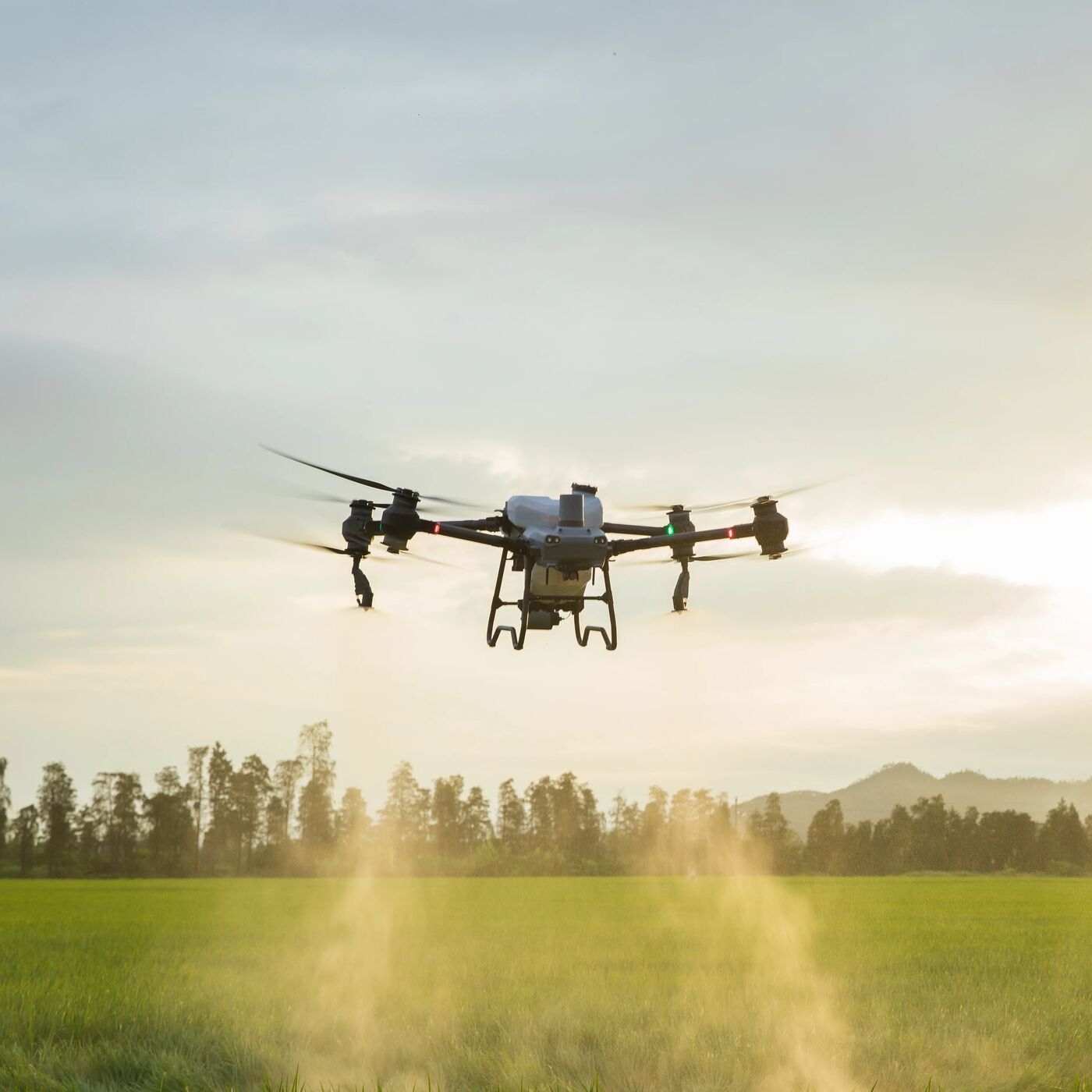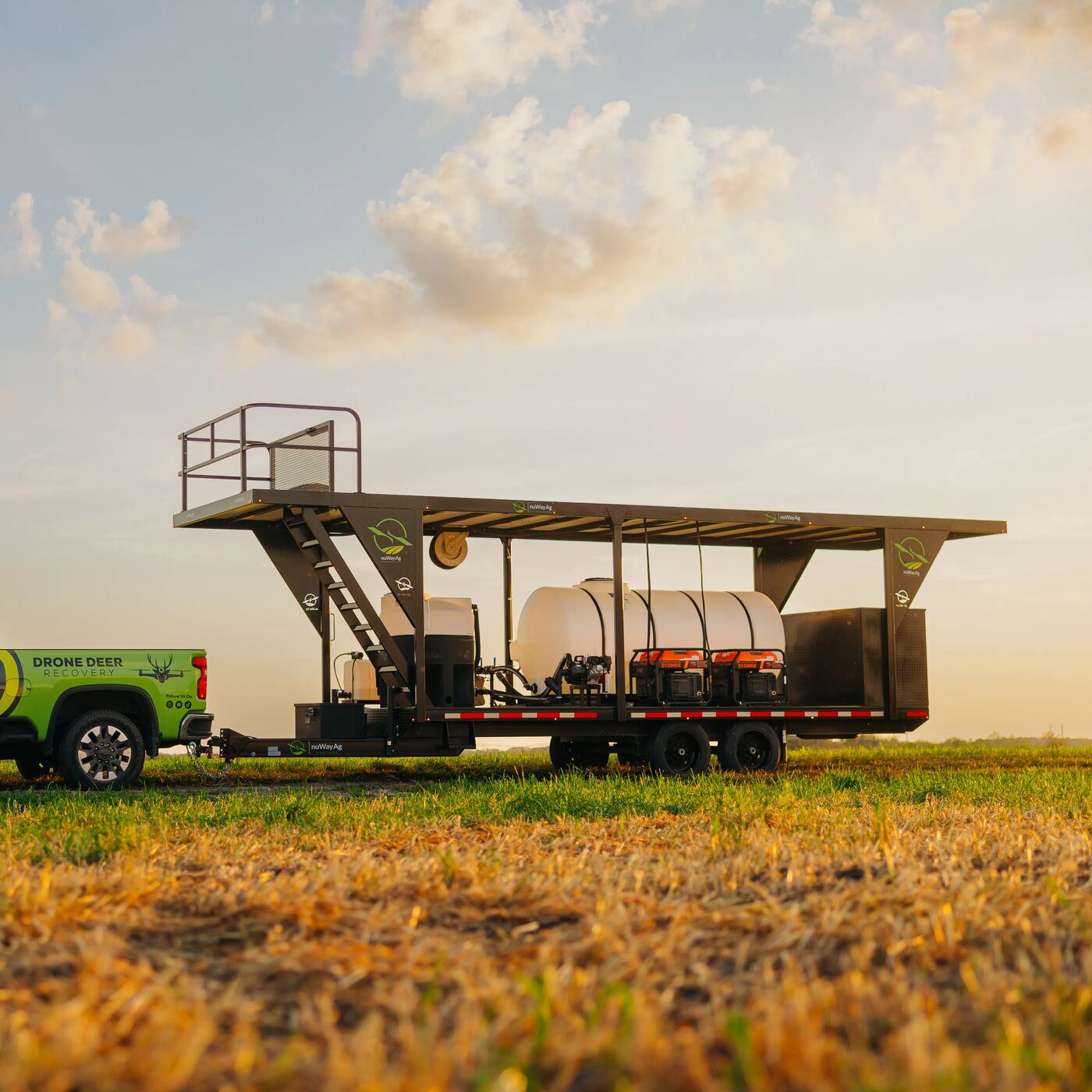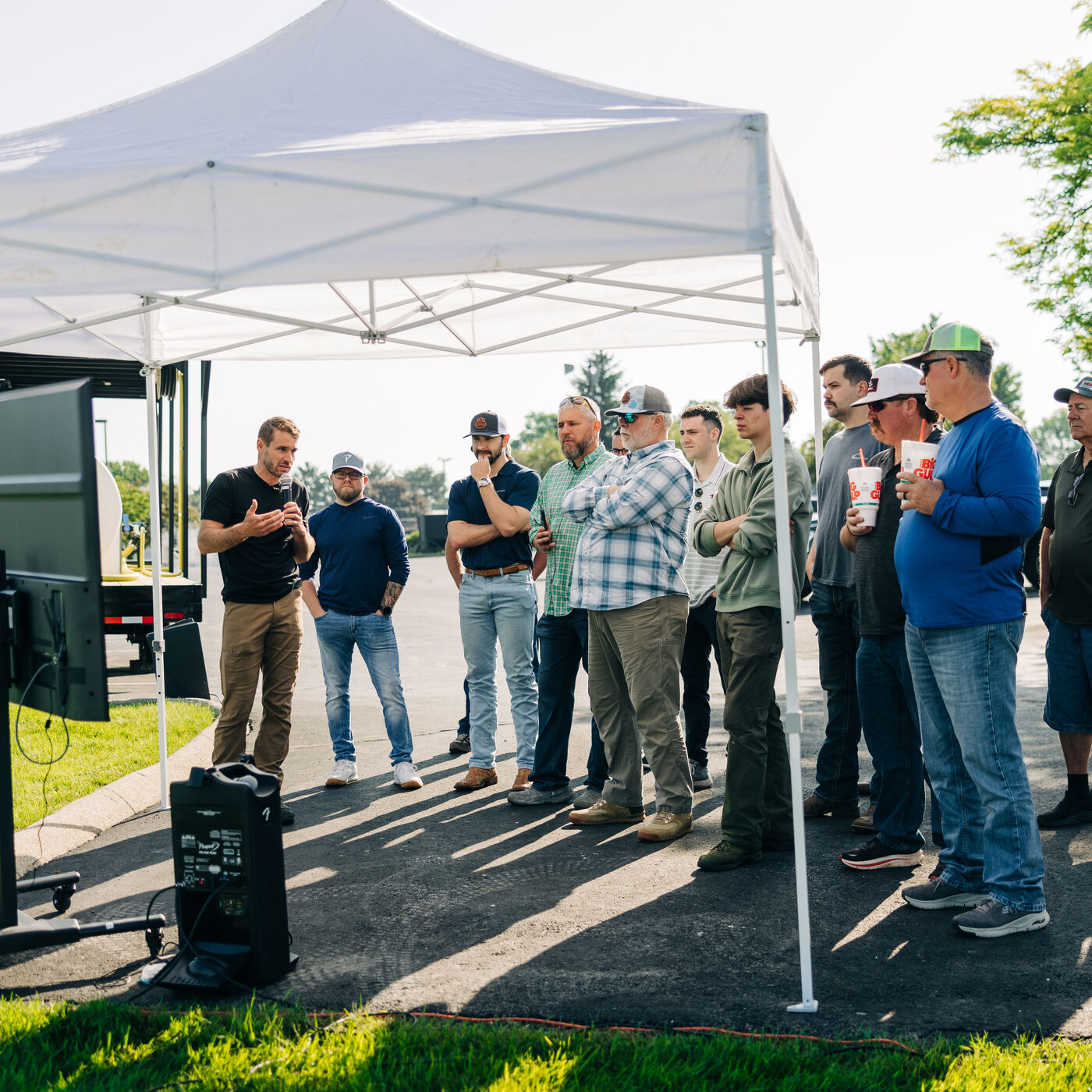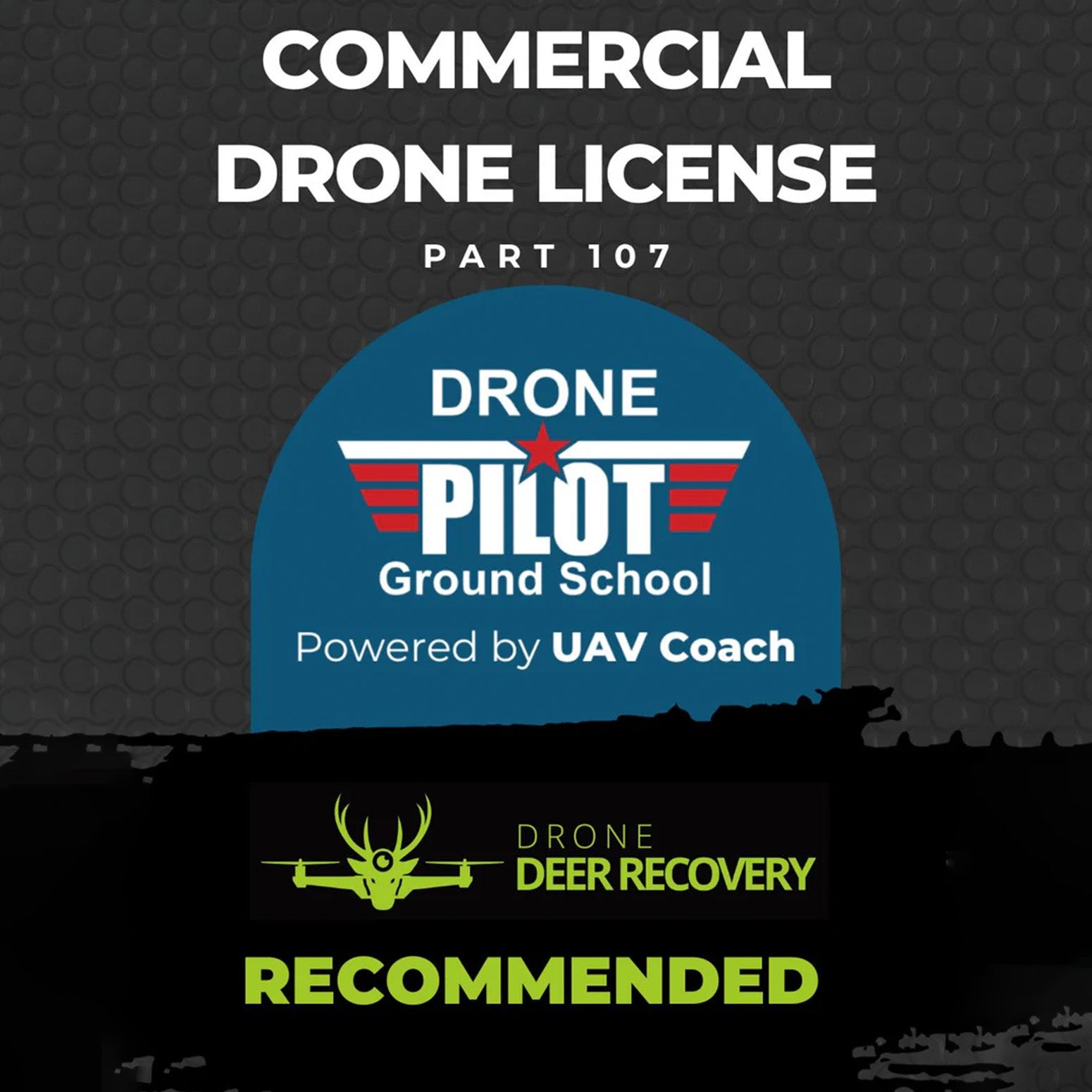
Commercial Drone License - Drone Pilot Ground School
Drone Pilot Ground School is an online test prep course for commercial drone pilots looking to pass the FAA Aeronautical Knowledge Test for a Remote Pilot Certificate (what you need to be able to charge customers money from flying a drone)
They have helped more than 50,000 students become certified drone pilots and have thousands of 5-star reviews.

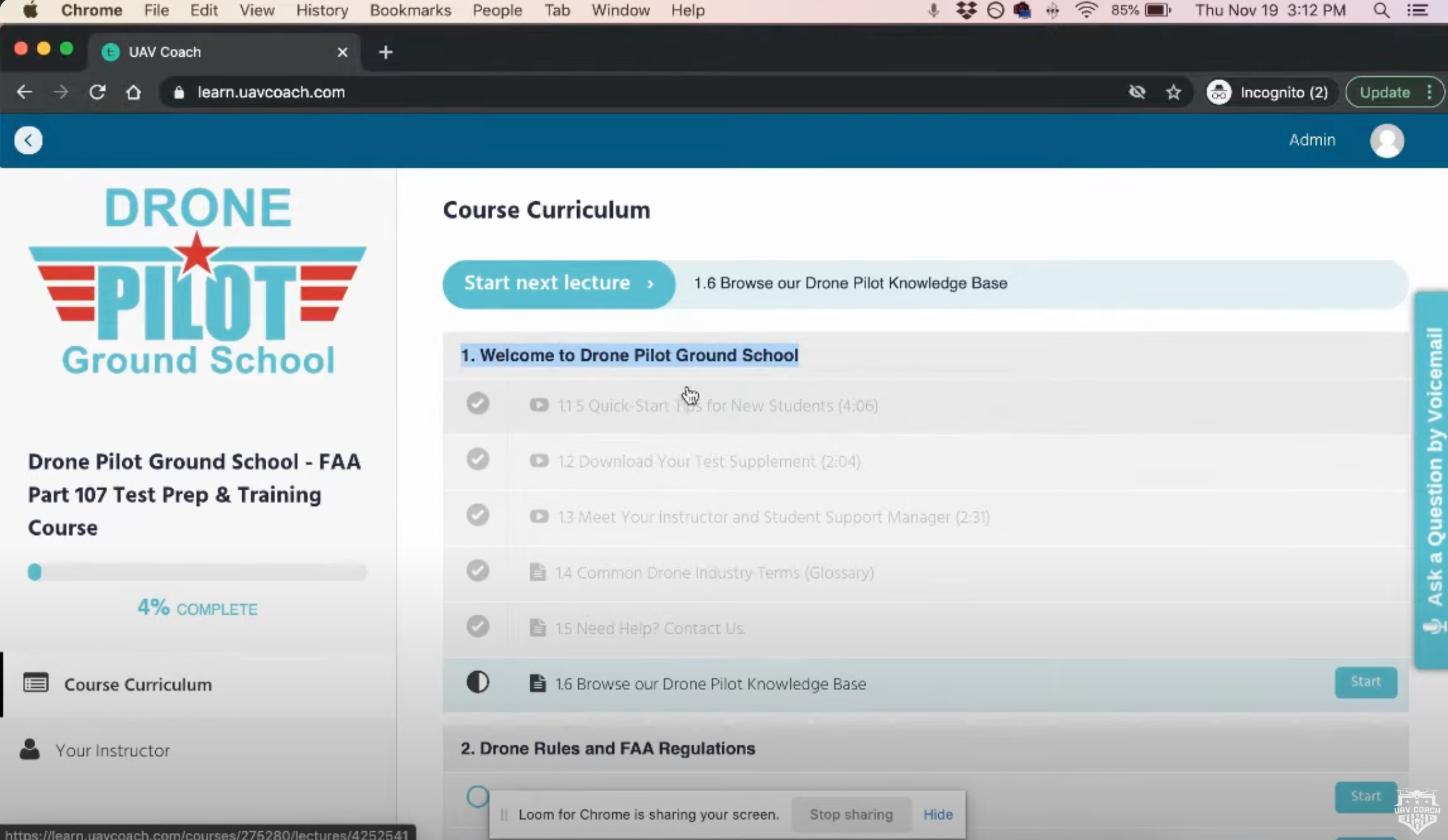
Learn More
FAQ
Have a question? We are here to help.

How hard is it to learn to fly an Ag Drone like the T40?
Efficiently operating the T40 is not as easy as the Matrice 30T or a smaller drone. It will require some practice. It can be learned, but you will be best served by spending a day with a seasoned pilot teaching you the ropes. That's why we offer in-person training at our HQ in Dundee, Ohio.
How do drone pilots typically charge for spraying?
In our area in NE Ohio, we charge between $14-$17 per acre. In some areas it could be as low as $12/acre and as high as $19/acre. This covers the cost of application only - the farmer is providing the chemical.
If the fields are large and wide open, a drone pilot might charge less per acre, but if they are broken up and hard to get to, he may charge more per acre, or even have a trip charge in addition to the acreage.
How many acres can a drone setup cover per day?
Because agricultural drone pilots get paid per acre, an efficient setup is the difference between making a killing or just covering the cost of equipment.
Small chopped up fields: If you're spraying small chopped up fields of 20-50 acres, you may only be able to cover 300-500 acres per drone setup (2 drones + a trailer) per day. This assumes you will have some travel time and 15-25 setups/tear-downs. At 400/acres per day at an average of $15/acre this would amount to $6,000/day gross.
Wide open running: If you have large wide-open fields of 100+ acres, and you are able to setup close to the fields, you may be able to hit 600-800 acres. 800 acres at an average of $15/acre is $12,000/day gross.
There is a lot that goes into an efficient spray operation. You'll need an experienced pilot and have a plan for logistics like refueling, battery management, and more.
How many acres can a Agras T40 spray per hour?
32-40 acres per hour if the drone is consistently in the air. This assumes an experienced pilot, and an efficient operation when it comes to refilling/recharging/setup/tear down.
Experienced drone pilots learn to minimize the time drones are not flying. After all - If the drone isn't covering acres, nobody is making money.
That's why things like the trailer and generator setup are much more important than most rookies realize.
What's the best Agricultural Drone available?
We've tried different drones. There is one clear winner - it's the Agras T40 by DJI. Nobody else even comes close. You know it's more than just our opinion when the XAG dealer switches over to DJI for their own spraying.
Are there bigger drones than the T40 available?
No - there are not. Although DJI has bigger drones like the T60 in their lineup with widespread use in Asian countries like China, the FAA does not yet permit bigger drones to fly.
How can I get leads for my new drone spray business?
There are two typical ways to approach this:
Chemical retailing companies: You could become an applicator for a chemical retailer company if they don't have their own drone division. Running an efficient drone operation is not as simple as some people think, so some chemical retailers who have their own drone division, can't really cover significant acres and are looking for subcontractors to help. Remember, they need a way to apply the chemical in order to sell it. The ideal setup is for the chemical company to bill the customer for the chemical and the application and then remit payment to you. It's typical for a chemical company to charge $2/acre fee for this service.
Farmers: As more and more farmers become aware of the benefits of spray drones, many of them are looking for a spray drone operator in their area. Free demos, local farm shows, and local advertising can help you be found by farmers searching for someone in your area. Here's a good exercise: Imagine you were a farmer wanting to find a spray drone pilot - would you be able to find your company/profile online?
What kind of training do you offer?
With the purchase of every T40 drone is an invitation to join us for a training day at our HQ in Dundee, Ohio. We'll help you unbox and setup your drone, and then walk you through real-life spraying, where we'll spray water over nearby fields.
Trainings are one-day, and will be held once a week. You can schedule your training after completing your purchase.
I have other questions:
If you have further questions - you can contact our team at (234) 423-4979 or email sales@dronedeerrecovery.com and we will get back to you within one business day.



